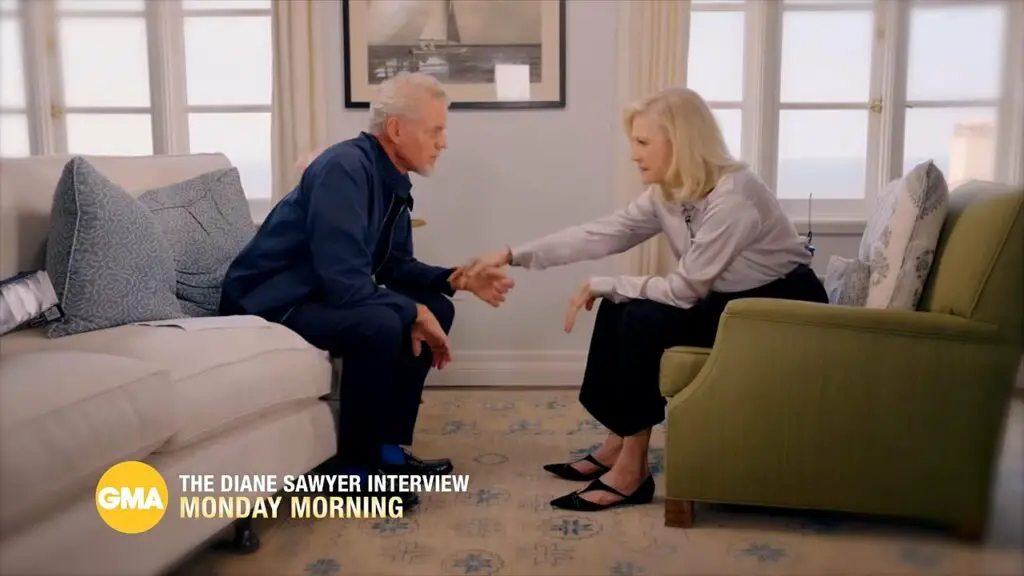Eric Dane, the actor widely recognized for his role as Dr. Mark “McSteamy” Sloan on Grey’s Anatomy, publicly revealed his diagnosis of amyotrophic lateral sclerosis (ALS) in April 2025. Since then, the 52-year-old actor has been open about his health journey, his advocacy work, and his determination to fight the disease while raising awareness for critical ALS research and legislation.
What Is ALS?
Amyotrophic lateral sclerosis (ALS) is a rare, progressive neurodegenerative disease that affects nerve cells in the brain and spinal cord. According to the ALS Association, ALS leads to the degeneration of motor neurons responsible for voluntary muscle movement. Over time, this can cause muscle weakness, difficulty speaking and swallowing, and eventually, paralysis.
In the United States, ALS is often referred to as Lou Gehrig’s disease, named after the famous baseball player who was diagnosed in 1939. While the disease progresses differently for each person, the average life expectancy following diagnosis is typically two to five years, although some individuals live much longer. The late physicist Stephen Hawking lived with ALS for more than five decades, far exceeding medical expectations.
Eric Dane’s Public Announcement
In April 2025, Eric Dane confirmed his ALS diagnosis in an interview with People magazine. In his statement, he expressed gratitude for the support of his loved ones and requested privacy for his family as they navigate this challenging time together.
The actor explained that the diagnosis came after a period of unexplained physical symptoms, which eventually led to medical testing and confirmation. ALS is notoriously difficult to diagnose, as symptoms often develop gradually and can mimic other neurological conditions. This diagnostic delay can affect eligibility for early clinical trials, something Dane has since highlighted in his advocacy work.

How ALS Has Affected Dane’s Daily Life
Since his diagnosis, Dane has continued to make public appearances, often using these opportunities to bring attention to ALS research and the importance of legislative support for patients. In recent months, he has experienced mobility challenges and uses a wheelchair for assistance.
In a June 2025 interview with Diane Sawyer on Good Morning America, Dane discussed the rapid progression of the disease. He shared that weakness in his right hand was among the first symptoms he noticed. At the time of the interview, his right side was no longer functional, and he acknowledged that further progression was expected. Despite this, he spoke with determination about continuing to pursue treatment options and maintaining hope for the future.

Advocacy for ALS Research and Legislation
Beyond his acting career, Eric Dane has become a prominent advocate for ALS awareness. One of his key focuses has been promoting the ACT for ALS, a U.S. law passed in 2021 designed to accelerate treatment development for ALS and expand access to investigational therapies for patients who are not eligible for clinical trials.
On September 29, 2025, Dane traveled to Washington, D.C., to meet with U.S. Representative Frank Pallone of New Jersey and members of the nonprofit organization I AM ALS. The visit aimed to encourage lawmakers to renew and strengthen support for the ACT for ALS, ensuring sustained funding for critical ALS research and expanded patient access to treatment.
In a TikTok video shared by U.S. Representative Eric Swalwell, Dane spoke about the importance of early diagnosis and research access. He noted that delayed diagnoses often prevent patients from participating in clinical trials, underscoring the urgency of increased awareness and faster diagnostic pathways.
Personal Strength and Family Support
Throughout his health journey, Eric Dane has emphasized the support he receives from his family and close friends. He and actress Rebecca Gayheart share two daughters, Billie Beatrice, 15, and Georgia Geraldine, 13. Dane has expressed that his greatest motivation to keep fighting the disease is his desire to be present for their future milestones.
“I want to see them graduate college, get married, maybe have grandchildren,” he shared during a legislative advocacy event. “I want to be there for all of that. So I’m going to keep fighting.”
Family and community support are critical for individuals living with ALS. According to the ALS Association, emotional and practical assistance can improve quality of life and help patients adapt to changing mobility and communication needs.

Raising Public Awareness
Eric Dane’s decision to share his diagnosis publicly has helped bring renewed attention to ALS, a disease that affects an estimated 31,000 people in the United States, according to CDC data. Increased visibility can lead to more funding for research, better understanding of the disease, and earlier diagnosis for others experiencing similar symptoms.
Dane joins a number of public figures who have used their platforms to raise awareness about ALS. Notable names who have battled the disease include Bryan Randall, Sandra Bullock’s partner, who passed away in 2023, and Stephen Hillenburg, the creator of SpongeBob SquarePants, who passed away in 2018.
Public advocacy campaigns—such as the 2014 ALS Ice Bucket Challenge—have played a major role in boosting research funding and clinical trials. According to the ALS Association, donations from the viral campaign helped fund several major breakthroughs in ALS research, including the discovery of new genes linked to the disease.
Continued Optimism and Determination
Despite the challenges ahead, Eric Dane remains hopeful and committed to advancing the conversation about ALS. In his interviews, he has spoken candidly about the emotional and physical toll of the disease while emphasizing the importance of surrounding himself with positivity and continuing to live meaningfully.
His story has resonated with many fans and members of the ALS community, who view his openness as a powerful example of resilience and advocacy. By using his platform to push for policy change and scientific progress, Dane is contributing to efforts that could help future generations of patients.

The Road Ahead
ALS currently has no cure, but ongoing research has led to significant advancements in understanding the disease. Several new drugs have been approved in recent years that can modestly slow progression in some patients. Gene therapies and experimental treatments are also in development, offering hope for more effective options in the future.
Eric Dane’s involvement in legislative advocacy and public awareness campaigns plays an important role in supporting this progress. By bringing attention to diagnostic challenges, clinical trial access, and funding needs, he is helping to keep ALS research in the public and political spotlight.
Sources:
- People Magazine (April 2025)
- Good Morning America interview with Diane Sawyer (June 2025)
- ALS Association official website
- U.S. House of Representatives (Frank Pallone, Eric Swalwell)
- CDC ALS prevalence data
